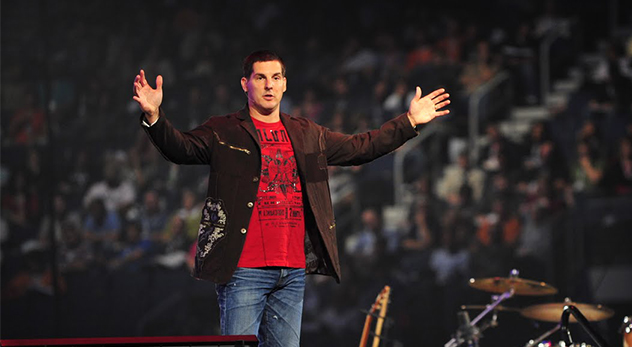Twenty-First Sunday in Ordinary Time
“Lord, will only a few people be saved?”
This question has been asked by many down through the ages. And it always seems to carry with it an attached degree of anxiety – as in: “Will I be saved?” “Will I be among the select few?”
But, as urgent as this question is, Jesus’ response in today’s gospel is somewhat baffling. It’s almost as if he were asked: “Is today Tuesday?” and he responded: “Seek the dog wearing a hat.”
To recall, here is Jesus’ response to the question about who will be saved: “Strive to enter through the narrow gate.” A “narrow gate?” Where did that come from? And what is it a gate to? No clear answer is given.
So let’s try to unpack what’s really going on here and hope that helps us better understand why Luke included this vignette when writing his gospel.
What is central to the message of Luke is that everyone is invited to participate in the journey … the journey of following the way of life Jesus dramatically portrayed – the way of dying to our egotistical self, and rising to a life of generosity and mercy.
He refers to it as the “narrow gate.” He calls it that because it opens onto a path that is not our usual first choice. We don’t want to squeeze through some narrow gate. We want to coast through the big, broad one – the gate of self-service, not other-service; the gate of ease and comfort, not hardship; the gate of power and influence, not the one of selfless surrender.
And that’s why it’s called “narrow.” Few naturally choose it.
To put it another way, Jesus invites us into an inverted world, one that seems turned upside down. It’s a world distinguished by a strong sense of belief that we are infinitely loved by a God who ardently pursues us and welcomes us into an intimate relationship distinguished by such virtues as generosity, service, and mercy. It’s a relationship defined by the word “love.”
Love, by its very nature, takes us out of ourselves. That’s what marriage is all about. That’s what birthing and raising a child is all about. That’s what family is all about.
Love is about solidarity, not individualism. It’s about community, not aloneness. It’s about sharing, not taking. It’s about service, not self-satisfaction.
But, our natural response to all this is that it’s too hard, too difficult, too demanding.
Jesus’ response to this natural reaction is captured in the first word he uses to answer the man’s question: strive. In the original Greek the word connotes engaging in an intense struggle and effort against great opposition. It is similar to the word describing the passionate anguish that Jesus himself endured in the agony in the garden.
Strive. Struggle. Endeavor. Attempt.
These are the words that the disciples of Jesus are to take to heart.
Songwriter Leonard Cohen says, “There is a crack in everything, and that’s how the light gets in.” Our faith journey is one of striving to find the cracks in order to see the light of hope. It’s one that embraces the old saying that goes: “The candle says to the darkness, ‘I beg to differ.’”
Strive to “Be compassionate as your heavenly Father is compassionate.” Strive to “Forgive seventy times seven, as your Father does.” Strive to “Seek first the kingdom of God.” Strive to be among those to whom the Lord will say “I was hungry and you gave me food.”
To enter through the narrow gate is to follow Jesus, to love what Jesus loved, and to live like Jesus lived.
Strive.
Ted Wolgamot, Psy.D.
11809194.1
8/18/16
NOTE: For those of you who might be interested, there is a fascinating new book I just finished reading entitled The End of White Christian America.
To borrow from the book flap, “For most of the country’s history, White Christian America – the cultural and political edifice built primarily by white Protestant Christians – set the tone for our national policy and shaped American ideals. But in recent decades, new immigration patterns, changing birth rates, and religious disaffiliation have transformed the United States. The year 1993 was the last in which white Protestants constituted a majority of the population. Today, even when Catholics are included, white Christians make up less than half the country.”
“Drawing on findings from one of the largest troves of survey data on contemporary politics and religion, Robert Jones shows how today’s most heated controversies … can be fully understood only in the context of the anxieties that white Christians feel as the racial, religious, and cultural landscape has changed around them.”
You can find an in-depth discussion with the author concerning his conclusions on my website, drtedsweb.com.





